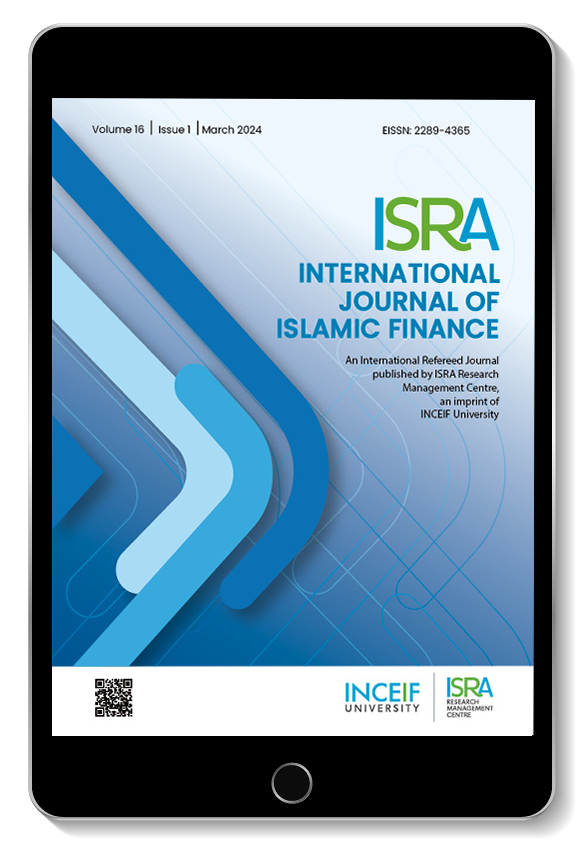Behavioural Intention of Zakat Participants Towards the Zakat Fund in Morocco
IF 2.8
Q2 BUSINESS, FINANCE
引用次数: 2
Abstract
Purpose ― Currently, there is neither a formal zakat system nor a zakat institution in Morocco. However, in recent years, discussions have intensified regarding the establishment of a national zakat fund in the Kingdom. In this regard, the paper attempts to fill the gap by examining the factors determining the intention of Moroccans to pay their zakat obligations to the national zakat fund. Design/Methodology/Approach ― The present study adopts a quantitative research design based on the theory of planned behaviour (TPB). A relevant questionnaire was designed and distributed to zakat believers in Morocco. Structural equation modelling (SEM) was used to analyse the data collected. Findings ― The study found that most of the zakat believers have basic knowledge of zakat as a religious obligation and that there is a need for proper education on zakat. Additionally, among the variables studied, only attitude has a significant positive impact on the intention of Moroccans to pay their zakat obligations to the zakat national fund. Originality/Value ― This study is unique in nature as it is the first study to explore individuals’ intention in Morocco to pay their zakat obligations to a national zakat fund based on the TPB. Research Limitations/Implications ― The primary limitation of this research is its scope. The study focuses on individual contributors only. Further studies might target businesses and Islamic financial institutions as potential donors. Practical Implications ― The paper suggests some recommendations aiming to increase confidence in the zakat fund and building a positive attitude among the muzakkīs (zakat payers).摩洛哥天课参与者对天课基金的行为意向
目的―目前,摩洛哥既没有正式的天课制度,也没有天课机构。然而,近年来,关于在王国设立国家天课基金的讨论愈演愈烈。在这方面,本文试图通过研究决定摩洛哥人向国家天课基金支付天课义务的因素来填补这一空白。设计/方法论/方法——本研究采用了基于计划行为理论的定量研究设计。设计了一份相关的调查表,并分发给摩洛哥的天课信徒。结构方程建模(SEM)用于分析所收集的数据。研究结果―研究发现,大多数天课信徒都对天课这一宗教义务有基本了解,有必要进行适当的天课教育。此外,在所研究的变量中,只有态度对摩洛哥人向天课国家基金支付天课义务的意图有显著的积极影响。独创性/价值——这项研究性质独特,因为它是第一项探索摩洛哥个人向基于TPB的国家天课基金支付天课义务的意图的研究。研究局限性/影响——本研究的主要局限性在于其范围。这项研究只关注个人贡献者。进一步的研究可能会将企业和伊斯兰金融机构作为潜在的捐助者。实际意义——本文提出了一些建议,旨在增强对天课基金的信心,并在天课支付者中建立积极的态度。
本文章由计算机程序翻译,如有差异,请以英文原文为准。
求助全文
约1分钟内获得全文
求助全文
来源期刊

ISRA International Journal of Islamic Finance
BUSINESS, FINANCE-
CiteScore
3.40
自引率
17.40%
发文量
18
审稿时长
20 weeks
期刊介绍:
It is the aspiration of the editorial committee that IJIF achieves the highest rank in quality and substance. It is thus our aim that the journal be carried in the Thompson Reuters’ ISI and Scopus databases. By ensuring high standards in articles published in Islamic finance we ensure that further innovation and research is carried out and promoted in the Islamic finance industry and academia. IJIF publishes 2 issues per annum.
 求助内容:
求助内容: 应助结果提醒方式:
应助结果提醒方式:


